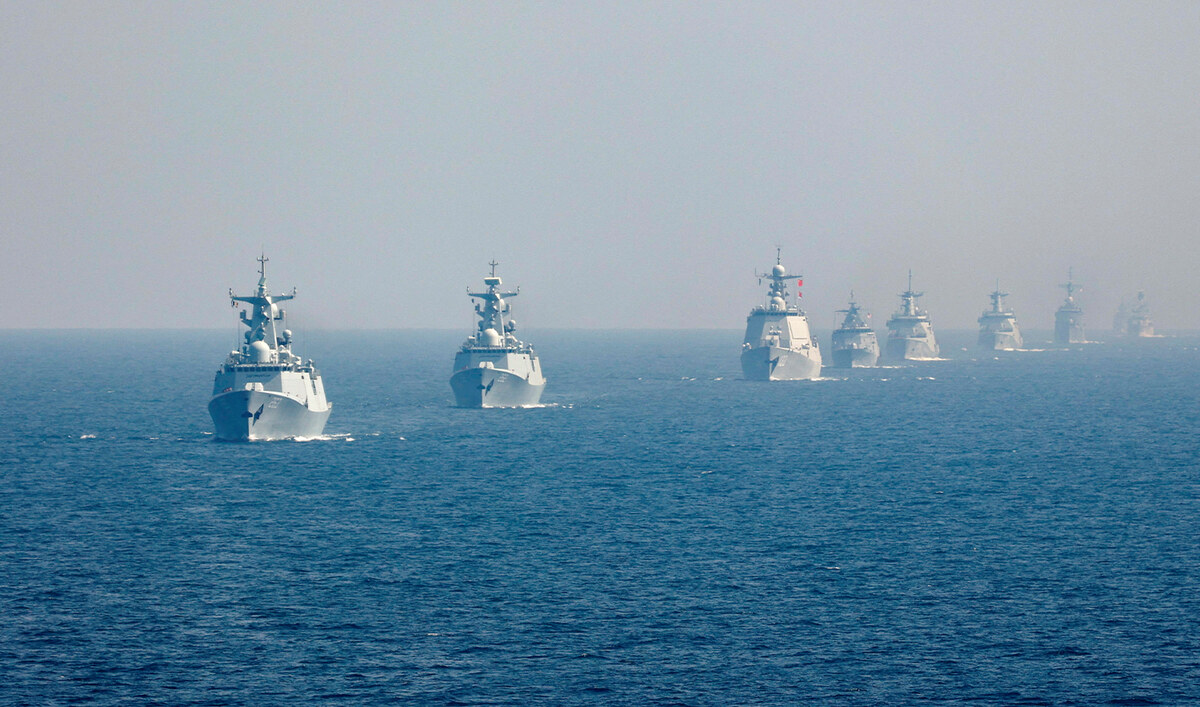ISLAMABAD: Prime Minister Shehbaz Sharif chaired the first meeting of his new cabinet on Monday and declared that bringing down inflation and getting foreign investment were his top priorities, as his government takes the reigns of a country of 241 million people facing profound economic, political and security challenges.
Cash-strapped Pakistan has grappled with the Feb. 8 general election that threw up a hung National Assembly and delayed the formation of a coalition government until Sharif was sworn in last Monday. A new 19-member cabinet took oath today, Monday.
“Now our biggest responsibility is that we have to take on the burden of this country’s prosperity,” Sharif told the new cabinet. “We have to do our utmost to figure out how to give relief to the poor person.”
Inflation touched a high of 38 percent with record depreciation of the rupee currency under Sharif’s last government from April 2022 to August 2023, mainly due to structural reforms necessitated by an International Monetary Fund (IMF) bailout deal in 2023. Pakistan continues to be enmeshed in economic crisis with inflation remaining high, hovering around 28.8 percent, and economic growth slowing to around 2 percent.
Sharif’s first order of business, as he admitted on Monday, was taking tough decisions to steer the country out of financial crisis, including negotiating a new bailout deal with the IMF. The current IMF program expires this month.
A new program will mean committing to steps needed to stay on a narrow path to recovery, but which will limit policy options to provide relief to a deeply frustrated population and cater to industries that are looking for government support to spur growth.
“I will not talk about taking loans now, I will talk only about foreign investment,” Sharif said, recounting his message to the Saudi ambassador during a meeting on Monday, referring to the Special Investment Facilitation Council (SIFC) that was set up last July to seek foreign funds, which has civil and military representation.
Other big moves by Sharif will include the privatization of loss-making state-owned enterprises such as the flagship carrier Pakistan International Airlines (PIA). The Sharifs have close ties with rulers in Saudi Arabia and Qatar, which could help in securing investments in several projects Pakistan has lately showcased for sale.
Although defense and key foreign policy decisions are largely influenced by the military, Sharif will have to juggle relations with the US and China, both major allies. He is also faced with dealing with fraying ties with three of Pakistan’s four neighbors, India, Iran and Afghanistan.
Pakistan is also facing a troubling rise in militancy, which Sharif’s government will have to immediately tackle.
“We will not dither or delay, there will be no delay, I won’t accept a minute’s delay,” the prime minister said. “You are my team, experienced people, a combination of youth and experience … and this is the combination that becomes the engine to take nations forward.”
“POLITICAL TEMPERATURES”
Shehbaz Sharif’s toughest challenge will be on the political front.
Independent candidates backed by jailed former Prime Minister Imran Khan gained the most seats, 93, after the elections, but Sharif’s Pakistan Muslim League-Nawaz (PML-N) and the Pakistan Peoples Party (PPP) of the Bhutto dynasty agreed to an alliance to form a coalition government. No single party won a majority.
The Sunni Ittehad Council backed by Khan alleges that the election was rigged against it and has called for an audit of the polls. Lowering political temperatures will thus be a key challenge for the new government as Khan maintains mass popular support in Pakistan, and a continued crackdown on his party and his remaining in jail would likely stoke tensions at a time when stability is needed to attract foreign investment to shore up the economy.
For now, the Khan-led opposition has signaled it would “cooperate” with the new government on issues of public concern but keep protesting the alleged manipulation of election results. Protests over the weekend saw over a hundred PTI leaders and supporters arrested, according to the party.
Sharif will also have to manage ties with the all-powerful military, which has directly or indirectly dominated Pakistan since independence. Unlike his elder brother, former PM Nawaz Sharif who has had a rocky relationship with the military in all his three terms, the younger Sharif is considered more acceptable and compliant by the generals, most independent analysts say. The military denies it interferes in political matters.


















